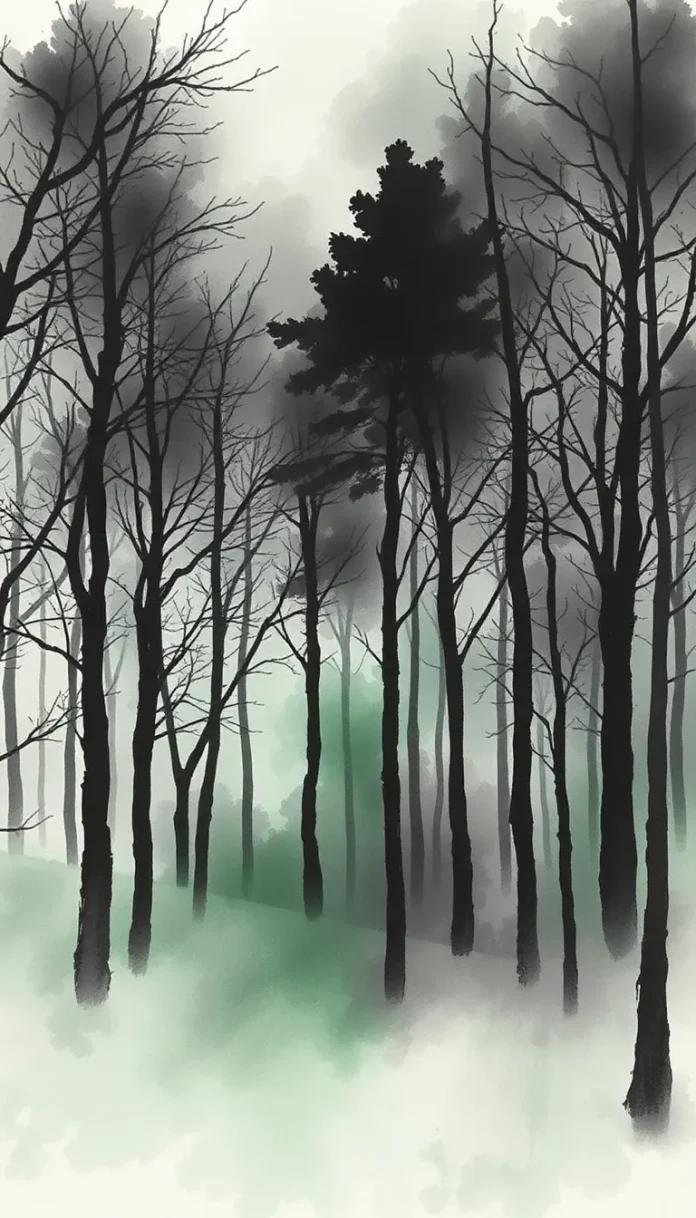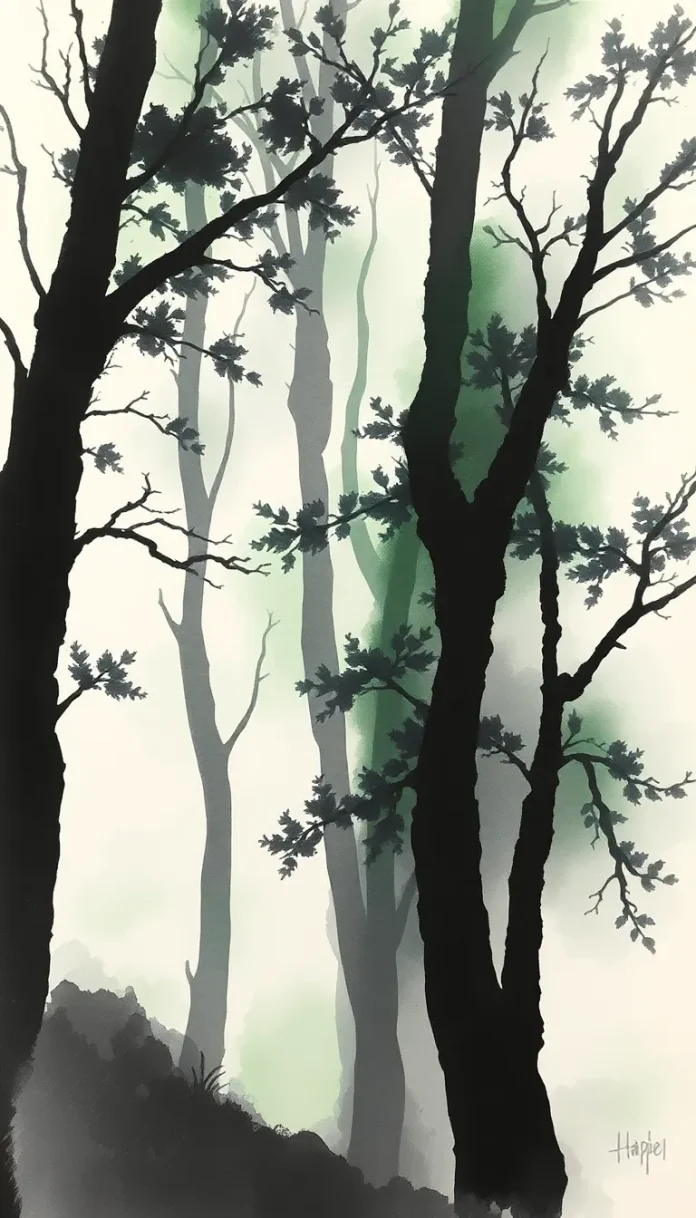Ephemeral Whispers in the Twilight Garden
Beneath an amber sky, the garden unfurled its secretive splendor. Violets and roses, in hues both vivid and tender, bowed their graceful heads as if in homage to the day’s sigh, while delicate dewdrops clung to slender blades of grass like pearls upon a mourning veil. The air, aromatized by the fragile breath of blossoms, carried whispers of ancient tales and dreams too wistful to be recaptured.
Promeneur Sensible, with his eyes deep as a stormy sea, stepped softly along the curling path, his footsteps echoing the rhythm of a long-forgotten refrain. “O evening of transient wonder,” he murmured to the wind, “how swift are thy passages, as fleeting as the fall of a tear, yet how splendid thy hues that doth mark the hours of our mortal span.” His words drifted among the curling vines and the rustling leaves, mingling with the scent of night-blooming jasmine and sorrow’s insecure promise.
In the garden’s heart, where the last embers of daylight played upon sculpted hedges and ancient stones, he found a secluded nook of rose bushes that seemed to conceal the very essence of time’s decay. There, beneath the outstretched boughs of an old willow, the Promeneur halted, his gaze aglow with a melancholy light. He bent low to consider a single rose, its petals as delicate as silk spun from grief, and spoke in a tone that bespoke both yearning and resignation:
“Dear bloom, thou art a keeper of secret lore,
Each petal a whisper from a time lost before.
In thy fragile beauty doth the fugitive hour reside,
A memory of dawn, now vanished with the tide.”
Thus did he converse with the blossoms, as one might with long-cherished phantoms, weaving his own tale into the fabric of the twilight. For in that moment, every soft sigh of the wind and every gentle caress of the chill dusk mirrored the resonance of his inner soliloquy—a tale of hope entwined with the inevitability of loss.
As night drew near, the garden transformed into a canvas of subtle shadows and muted silver gleams. The stars awakened overhead, timid and distant, like silent observers to the ephemeral spectacle below. In the gloaming, the flowers seemed to murmur amongst themselves—a chorus of fragile voices lamenting the transitory nature of their existence. And yet, in the midst of such delicate beauty, there pervaded an indescribable melancholy that clung to the air like a sigh, a tender remembrance of all that was fleeting.
The Promeneur strolled on, his thoughts adrift in a sea of recollection and sorrow. Memories of youthful days, once vivid and sprightly, now appeared as ghostly silhouettes against the dim light of recollection, each one resonating with the delicate toll of an ephemeral bell. His steps led him to a tranquil pool, its surface a gleaming mirror reflecting both the deep indigo of encroaching night and the shimmering, transient fragments of the starry firmament.
Here, he paused and gazed into the water as if beholding a second life—a world in which every ripple played the notes of an elegiac symphony. “O mirror of the evanescent soul,” he whispered, his voice trembling in the hush of twilight, “thy depths reveal the truth of all things that pass. Even as thou hold’st the dreams of night within thy silvery embrace, thou canst not forestall their inevitable dissolve with the coming of dawn.”
There, beside the reflective pool, the Promeneur Sensible encountered an old bench, carved with the initials of lovers and dreamers who had, in forgotten days, sought refuge from a world too cruel and transient. Here, he sat, and as his gaze lingered on the engravings—a silent testament to myriad ephemeral passions—he became acutely aware of the bittersweet nature of his own existence. For, like the faded scribblings on that ancient wood, his life was destined to be but a brief, luminous flare in the long span of time.
In a quiet whisper to the gentle night, he confessed the sorrows of his heart. “O fleeting life, as brief as the glimmer of a falling star,
Thou art both balm and bane, both near and far.
In thy transitory beauty, I see the phantom of despair,
A truth that binds my soul in endless, woeful care.”
His voice, imbued with the music of both longing and regret, resounded softly amidst the quiet hum of the nocturnal garden. And as his words faded into the cool darkness, the soft rustling of the leaves seemed to echo his lament, as if the very flora had taken upon itself the burden of his transient grief.
The hours pressed on, each moment dissolving like the final notes of a nocturne, until the garden itself appeared to weep for the passing of another day. In the midst of this gentle decay, the Promeneur’s mind wandered to matters of the heart—a love, once vivid and radiant, that had burned so fiercely but now lay extinguished, leaving behind only the cold ashes of memory. It was in this silent contemplation that he recalled a conversation, half-forgotten and almost lost to the vortex of time, a dialogue with a kindred spirit whose voice, like a gentle breeze, had once stirred the embers of passion in his heart.
In a faint, almost spectral echo, he remembered:
“Do you not see, dear friend, how the twilight mirrors our fate?—
How each radiant bloom must ultimately yield to the shadow of decay?
Yet in every petal’s fall is written the poetry of an impermanent grace,
A fleeting beauty that makes our sorrows all the more cherished.”
And so, in the soft cadence of the evening, Promeneur Sensible had replied, his voice heavy with the weight of inevitable parting:
“Indeed, the garden weeps with our shared laments,
For in its transient glow we trace the outline of our own lament.
Yet even as the blossoms surrender to time’s relentless hand,
Our hearts, though filled with yearning, must embrace the sorrow of this land.”
Such words, born of a spirit both tender and resigned, reverberated through the ages like the haunting strains of a dirge for lost time. And now, as the garden’s nocturnal curtains fell, the Promeneur felt the inexorable approach of his own dusk—a final act in the eternal cycle of beauty and decay.
Deep within his soul, the awareness of impermanence took root, a bittersweet seed nurtured by the cool evening air. Each blossom, with its fleeting brilliance, whispered a reminder of life’s ephemeral nature—a truth that, though it brought despair, also rendered every moment precious. Yet in this grandeur of transient beauty, heavy sorrow lurked like the shadow of a forgotten memory, stern and immutable.
As the midnight hour drew near, the garden’s gentle illumination gave way to a somber, silvery twilight—a reminder that even the most radiant days must eventually fall into the quiet clasp of night. Promeneur Sensible rose from his contemplation at the bench and resumed his wandering, tracing a path that led him deeper into the labyrinth of his thoughts and into the very heart of the garden. There, among clusters of lilies and clusters of wistful violets, he sought solace in the firmament of night’s embrace.
Yet, amid the muted symphony of the twilight, dark receivables began to coalesce. With each step, the weight of sorrow and the unyielding truth of transience pressed upon him, until his spirit trembled as though on the verge of shattering—a delicate porcelain vase burdened by the ache of years. The blooms, already beginning to droop with the fatigue of a day’s lament, seemed to mirror his inner desolation. Their once-luminous petals now hinted at the pallor of regret and the silent dirge of a life too swift to be fully savored.
In a secluded part of the garden, where the remnants of daylight lay scattered like shards of forgotten dreams, he came upon an ancient fountain. Its water, though still and clear, seemed to capture a grief older than the stars—a quiet memory of laughter turned to lament and hope transformed into sorrow. Drawn by a compulsion as old as time itself, Promeneur Sensible approached the fountain and knelt, gazing into its reflective depths as if seeking the face of his own vanishing mirth.
There, in the still waters of the fountain, he perceived a vision of his past—a joy once shared in the earnest glow of youthful spring, now faded as if by the caress of countless autumns. In this spectral reflection, he beheld not the man who now roamed the twilight garden, but a wistful echo of former bliss, fragile as a gossamer thread. His heart, heavy with the poignant weight of what was and what would never be again, seemed to break in silent lament.
“O mirror of lost hours,” he intoned with an aching resolve, “thy image doth remind me that all beauty, like the tender blush of a rose at dawn, is destined to wither in time’s unyielding grasp. Can it be that our joys are but ephemeral dreams, destined to vanish like the softest sigh upon the wind?”
The water, unwavering in its quiet purpose, offered no solace but the reflection of that somber truth. His soul, already steeped in the melancholic hues of the garden, now seemed poised to surrender to the inexorable march of days and nights—a march that would ultimately lead him to a fate as frail and transitory as the fragile blooms at his feet.
Thus, in the lonely confines of that enchanted garden, Promeneur Sensible became a living symbol of life’s ephemeral journey—a wanderer adrift in the vast, unremitting sea of time, whose every step echoed with the silent hymn of inevitable decline. As shadows deepened and the night’s chill pressed close, a sorrowful revelation unfurled within him: that beauty, no matter how radiant, was destined to be consigned to oblivion, and that the heart, fragile as a winter’s branch, would always bear the mark of loss.
The garden, as if in silent mourning, seemed to shutter its vibrant heart; each delicate bloom bowed low in a final act of resignation. Even the silvered moon offered but a pale and distant light, a feeble guardian in the overwhelming gloom of an eternal night. And within this setting—so resplendent in its transient glory and yet so steeped in impending sorrow—the Promeneur’s fate was sealed.
In one final, desperate bid to cling to the grandeur of a life now dissolving, he gathered in trembling hands a small handful of petals, each one a fragile memory of a once radiant bloom. “These, the tokens of all that I have loved,” he whispered, his voice barely audible against the lament of the whispering wind, “shall be my epistle to the fleeting beauty of existence. In their delicate decay, I see both the promise and the despair of all that life may offer.”
With eyes brimming with the tears of an unyielding sorrow, he scattered the petals upon the cold, damp earth—a final homage to the ephemeral wonders of the twilight. Each petal, as it fell, seemed to dissolve into the fabric of night, a dissolution that mirrored the tragic unraveling of his own being. Once vibrant with hope, his spirit now languished in the wake of an inevitable despair—the very embodiment of life’s relentless impermanence.
In that heartbreaking vigil beneath the ancient boughs and trembling under the somber gaze of stars, Promeneur Sensible closed his eyes. The once tender murmur of nature now roared like an elegy of loss through the garden, the voices of countless flowers and whispered winds converging into one final, mournful cadence. He drifted in a reverie of sorrow, a soul forever captured in the delicate interplay of nature and transience—a living testament to the inescapable truth that all earthly beauty is but a passing breath.
And as the night advanced in its relentless sorrow and the garden’s bloom surrendered to the inexorable tide of decay, a final, tragic silence descended—a silence that spoke of a life bereft of renewal, and of a spirit engulfed in unending melancholy. For Promeneur Sensible, whose every heartbeat had echoed the ephemeral beauty of the twilight hours, found that in the relentless march of time, no joy remains immortal. Amid the gentle, sorrowful caress of the dying light, his journey reached its heart-wrenching close, leaving behind only the poignant echoes of a fleeting existence and a garden forever veiled in tragic lament.
Thus ends the sorrowful tale of the Sensible Wanderer in the twilight garden, a life marked by the graceful yet transient bloom of nature and the bitter, inescapable truth of ephemerality—a truth that, like the quiet fall of a petal at dusk, leaves behind a legacy of tender, unhealed melancholy.


